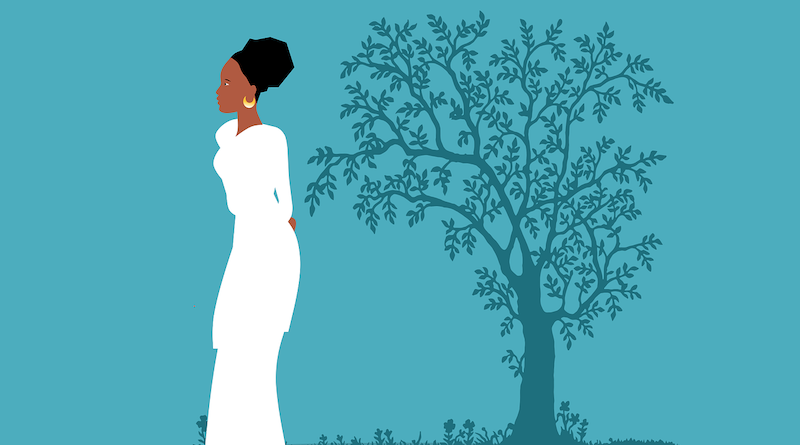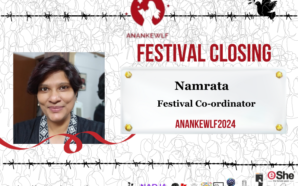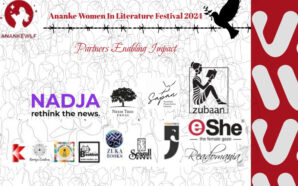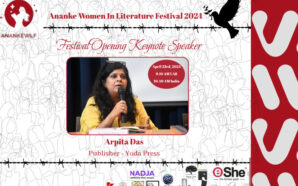In her journal, my mother wrote about how lucky she was that her father had taken her to school despite this not being a common practice during that time. Having lived in a rural area all her life, going to school in the city was the utmost privilege. She ended up settling in the city of Mombasa and this is where I grew up and was raised. As a firstborn, I did feel some pressure, especially from my dad to always be the best. It was never enough to be the best-performing girl; it would only count if I had outperformed the best-performing boy in class. I felt like this was the burden I had to carry for not being born a boy. Now I relate to all the tweets that advocate for a support group for firstborn daughters.
If you see a woman and a man, even if the woman pays, just know it’s the man’s money
Fast forward to when I was at University where I first learned about feminism. I gained so much perspective and insights on some of the things I had previously not known the right words for. I realized I wanted to openly identify myself as one and made it something I would always talk about in my circles. I was pretty excited then and I remember sharing all that I had learnt with a particular male friend of mine. I sent him links to articles and videos so he could read and be educated. A couple of weeks later, it so happened that we were at the supermarket together. I wanted to try some new yoghurt flavors that were in the market and grabbed a couple for us to try. I proceeded to the cashier’s desk to pay for the items as my friend went ahead of me. After the transaction was done, while I was standing there waiting for my balance, I remember just seeing the cashier leaning back and stretching out his hand in the most uncomfortable way just to hand over the balance to my friend. Firstly, it was way easier from a practical standpoint for him to just stretch his hand forward to give me my balance so it did not make sense why he went through all that. Secondly, I had clearly removed the money out of my own purse while my friend was almost at the exit waiting for me to pay so I did not understand why he did not return the balance to me who had handed him the money. Did he assume the money I had was from the man anyway so he should get what remains?
That experience reminded me of what Chimamanda had shared a couple of years ago. She went through something similar. She paid a porter to help with her luggage and upon receiving the money, he turned to her friend (male ) and responded “Thank you Sir !” yet she was the one who had paid him.
Why would a girl like you even speak about owning property?
The ethnic community I come from is very patriarchal, like a number in the country, but I thought that my educated relatives had come to light and let go of some of the cultural beliefs that view women as less than.
I thought wrong!
In 2018, I lost my mother, my surviving parent at the time and I remember during the burial proceedings when I gave a speech on how my siblings and I would be ready to take over our parent’s property, my sentiments were met with such vileness. It did not only come from men but women too. “Look at this stupid girl! Who does she think she is publicly talking about owning land ?” people started saying and shouting. Later on, I was even called to a meeting to address my so-called “rudeness” for speaking “out of turn”. Over time my uncles made it clear that they only viewed my younger brother as the rightful heir to any property that my parents had and that any proceeds that came from tilling the land would go directly to him. He was a minor then. True to it, nothing came into mine or my sister’s account but recently they are working towards finally remitting it to my brother now that he is older. It was better for them that the money just stayed idle than to be put in the hands of women.
These are the same people who have taken their daughters to great schools; some in the city. I remember wondering how they could do that but still view me as less than. I kept on wondering how they would feel if their own daughters were to be treated the same way they were treating me.
It did not make sense why one would give their daughter an opportunity to get a good education that would in turn empower her economically but draw the line on owning property, something that even the Country’s laws provided for.
Sometimes I think of how I could have done more. Perhaps even taken legal action but truth be told, I needed help to be able to do that. I was probably in my most vulnerable state and let’s not even get to the conversation of going against family.
The above are just two of my lived experiences where I felt the actions or outcomes of the situation were pegged on the fact that I was a woman. There are many more lived experiences of women across the globe that utterly break my heart across the globe. In Afghanistan for example, it was decided that women would no longer access University education. When it comes to ownership of land, globally, less than 15% of all landowners are women. To date, women are still disadvantaged on so many fronts and it is not fair.
“I am not free while any woman is unfree, even when her shackles are very different from my own.” ― Audre Lorde
I absolutely love being a woman but it gets hard sometimes.
Lightly edited for clarity
Image by mohamed_hassan from Pixabay











